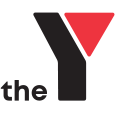When was the last time you ducked into a public toilet? Did you notice the sign?
Many of us take for granted the power of a sign, let alone think about how signage is essential to creating inclusion. But these universal symbols displayed on a wall or door can be quiet champions for demonstrating equality and fighting discrimination.
For many vulnerable people within our communities, these signs communicate acceptance, access and a safe space. And regardless of whether you are in Wodonga or Warsaw these signs aim to transcend cultural and language barriers.
But public toilets and indeed the signage used have long been a battleground for social progression.
Did you know that the accessibility sign came off the back of a disability revolution in the 1960s? The International Symbol of Access (the blue and white wheelchair sign) was designed in 1968 in Sweden and has been used ever since.
This seemingly simple sign alerts wheelchair users, the elderly and people with disabilities that the space is modified for their use. But the sign also says that they are welcomed and are equal. The sign tells them they were not forgotten in the design process of the facility.
Like people who require accessible toilets, transgender people, those who are transitioning or identify as non-binary or gender diverse deserve access to a gender-neutral toilet.
It is estimated that as much as 1% of the Australian population are gender diverse – that’s 246,000 people - yet very few of our toilets and signs reflect this which can further negatively contribute to their health and wellbeing.
A 2017 study by Telethon Kids Institute shows that young trans people are ten times as likely to experience high depression and anxiety compared to cis-gendered young people.
Currently there is no law to enforce gender-neutral toilets, however in 2017 South Australian State Government approved a new policy that allows school students to use toilets of the gender they identify with. YMCA Victoria has the same policy. Schools, businesses, universities and organisations are finding an increasing need to provide gender-neutral toilets to promote equality.
Last year, YMCA Lady Northcote Recreation Camp opened gender-neutral toilets for its campers, who are predominantly young school students.
Camp manager Rob Cummins said the bathroom refurbishment was a result of a growing need to provide more inclusion.
Over the last three years there has been a growing number of students who are transitioning or are transgender and a camp is an important place for everyone to feel welcomed, accepted and comfortable so they can have a memorable experience. Rob Cummins, Camp Manager at Lady Northcote Recreation Camp
After extensive consultation with camp groups, new toilets were built for $90,000. They opened in May 2018 and have had positive feedback from the 300 groups, consisting of 18,000 campers that have been through the camp over the last year.
YMCA Victoria supports the need for further investment into more gender-neutral toilets as we work towards becoming a more equal and inclusive society.
Next time you see a sign outside of a toilet block, give it a second glance and remember the importance it holds for many people and of quiet revolution for equality and inclusion it represents.
